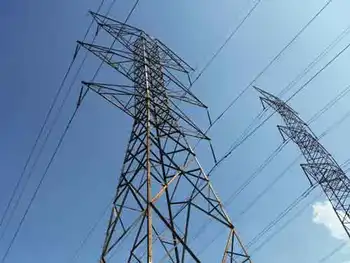Ontarians footing energy bill for export deals
ONTARIO - Ontario electricity customers have subsidized power exports to the tune of $1 billion since 2006 - with most of the money ending up in the pockets of energy traders.
That's the conclusion of research by three experts in North American energy markets, who are preparing an in-depth look at the issue to be published later this year by the C.D. Howe Institute.
The traders are exploiting the fact that exported power doesn't have to pay a substantial fee called the "global adjustment" that is charged to domestic electricity users.
They can buy Ontario power at a price significantly below the one paid by Ontario residents, and sell it into the Quebec or U.S. markets, where it fetches a much higher price.
"It is middlemen that are probably benefiting, and we don't know who these people are," says Jan Carr, former chief executive of the Ontario Power Authority, who is one of the researchers.
Carr has studied the issue with Greg Baden and Lucia Tomson, both of whom spent years as energy traders. Baden and Tomson are now with the energy consulting firm BECL and Associates Ltd.
All three stress that there's nothing illegal or improper with the export transactions, noting that exports can be beneficial.
But they say it's unfair to Ontario ratepayers, who are paying the full cost of electricity produced in the province, while traders in effect buy it below cost and turn a profit by exporting it.
Carr estimates that Ontario electricity customers on average have provided subsidies of $250 each over the past five years to the exporters.
Electricity exports have been increasingly in the public eye, as the growing supply of renewable power entering the market is more frequently creating surpluses available for export.
Ontario has always traded energy with its neighbours, but until a few years ago was generally a net importer, says Tomson.
Recent figures, she notes, show exports running about 3.5 times higher than imports: "That's a huge change."
The trio trace the roots of the issue to about 2005, when the Ontario government increasingly took electricity pricing away from the open market. For example:
• Much of the output from Ontario Power Generation - its nuclear stations and big hydroelectric plants - was regulated.
• The newly created Ontario Power Authority signed fixed price contracts with other generators, including Bruce Power.
• Meanwhile, contracts were made with wind, solar and other renewable power producers at fixed prices.
Some of the contracts were at prices above the market rate. To make up the difference, customers were charged a "global adjustment," which shows up as the "provincial benefit" on retail hydro bills.
In previous years, the global adjustment was quite small - about 0.5 cents a kilowatt hour while the market price was about 5 cents.
But starting about 2008, the balance changed dramatically.
The recession softened demand for power, weakening the market price. Natural gas prices, which also influence the electricity price, also reduced power prices.
Meanwhile, an increasing amount of power was flowing onto the grid at fixed prices higher than market levels.
As a result, for the past two years, the market price and global adjustment have been about equal. The global adjustment, once less than a penny per kwh, now is generally in the three to four cent range.
That means exporters who buy on the market are paying far less for power than domestic customers, but all the costs of contracted power must still be covered by the Ontario ratepayer.
"For every megawatt hour that's exported, the global adjustment is paid for by the Ontario ratepayer," says Tomson.
Baden says there are 20 to 30 firms in Ontario who are active energy traders. Some are associated with private generators, some are in the trading business. Several are affiliated with provincial power firms, including B.C. Hydro, Hydro Quebec and SaskPower.
But Baden says trading details are hidden from view, so it's impossible to tell which firms are taking advantage of the global adjustment wrinkle.
While no one is doing anything wrong, the current rules need to be changed because no one intended the current export anomaly to develop, says Baden. "The solution is simply charging the global adjustment to the exports. You'll be getting fair value for your energy."
Related News

Californians Learning That Solar Panels Don't Work in Blackouts
SAN FRANCISCO - Californians have embraced rooftop solar panels more than anyone in the U.S., but many are learning the hard way the systems won’t keep the lights on during blackouts.
That’s because most panels are designed to supply power to the grid -- not directly to houses. During the heat of the day, solar systems can crank out more juice than a home can handle. Conversely, they don’t produce power at all at night. So systems are tied into the grid, and the vast majority aren’t working this week as PG&E Corp. cuts power to much of Northern California to…




